Do we need more than two genders?
- Published
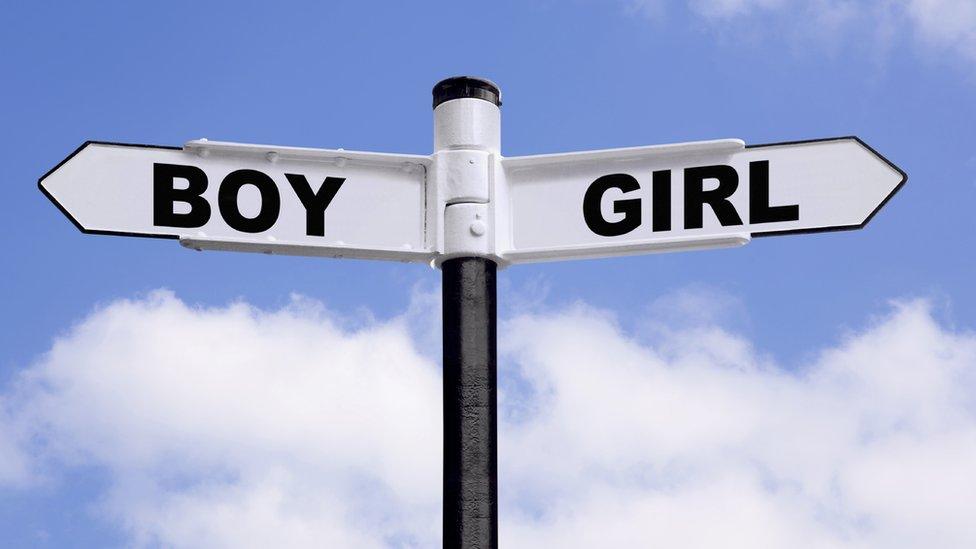
A growing number of people refuse to be put into male or female categories, either because they do not identify as male or female, or because they are going through transition to the opposite gender.
Germany, Australia, Nepal and Pakistan now offer a third gender option on official forms with other countries set to follow suit. And scientists are finding more evidence to suggest that even biological sex is a spectrum.
Do we need to re-imagine our binary world and rethink one of the most basic parts of our identity?
Four experts talk to the BBC World Service Inquiry programme.

Brin Bixby: Gender is a cultural construction
Brin Bixby was brought up as a boy, and went on to get married and father children before coming out as bigender. She set up Bigender.net, which reflects the view that gender is a spectrum.
"In college I wore a dress on Halloween, and it was supposed to be a joke, and the people helping me thought it was going to be hyper-real, exaggerated. [But] I didn't want to be a drag queen, I wanted to be a woman, and I think it took people by surprise.
"It was the first time I looked in the mirror and saw myself. People interacted with me as a woman: they saw me the way I wanted them to.
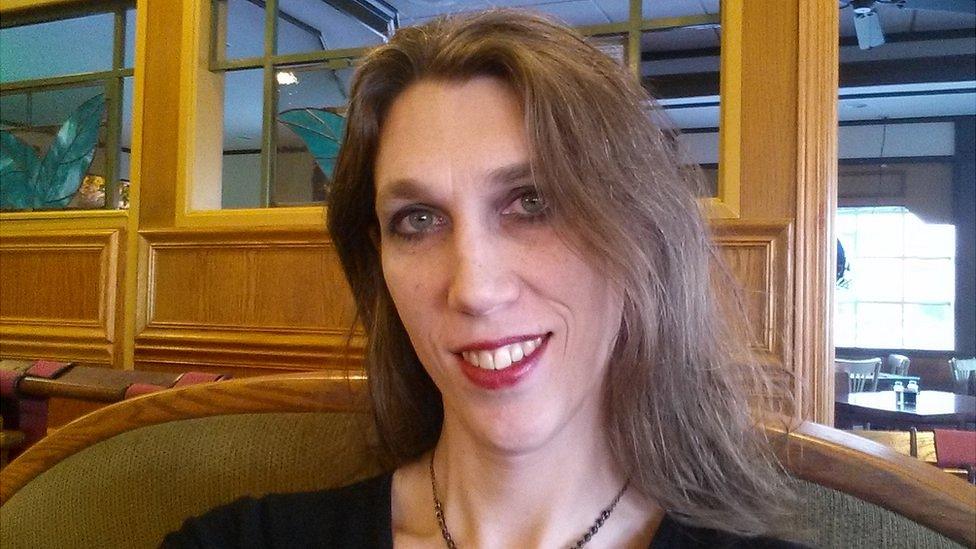
Brin Bixby founded the website she wishes had been available for her younger self
"I would be most comfortable if I didn't have to think about my gender, but unfortunately that's not how it works for me and a lot of other non-binary people.
"We have a cultural understanding of what gender is and looks like, and in the west we have a very binary view of it. My sense of gender as a part of my identity shifts.
"I present as a woman everywhere I go, except for at work and at my children's school, because it gets very exhausting to have to explain gender fluidity to everyone I meet.
"Ideally we would not make gender such a huge focus of our culture, which would give people the freedom to inhabit their gender in ways that feels most comfortable to them.
"What we're seeing now is a relaxation of the sense of binary amongst younger people and internet-savvy people who are inhabiting much more fluid spaces."

Mark Gevisser: Accept the gender continuum
Writer Mark Gevisser explores gender identities across different cultures.
"We know there's a gender continuum, because there have always been effeminate boys and masculine girls. Transgender is certainly not a western phenomenon. In many cultures all over the world there are traditionally third gender or gender-fluid identities.
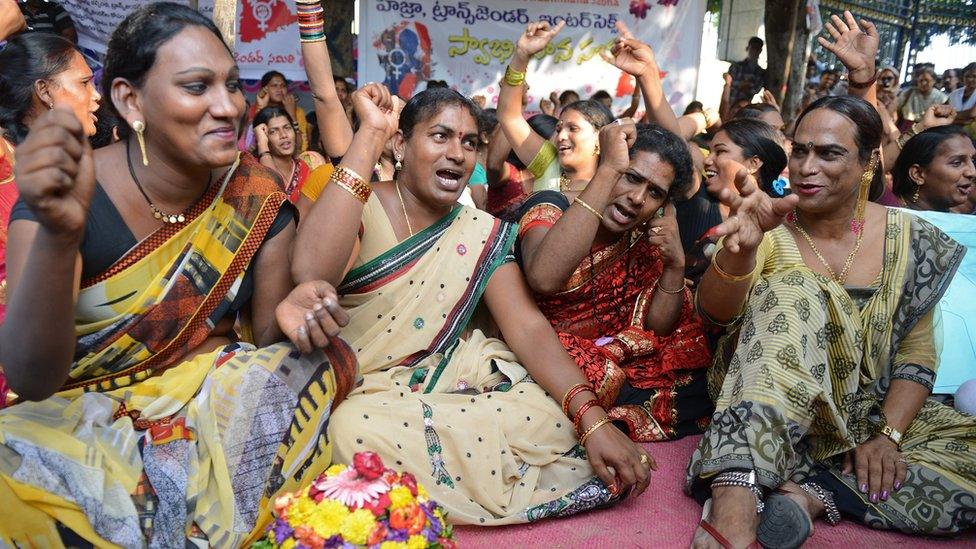
Hijra activists in Hyderabad protest against the stigma and discrimination they sometimes face
"There are the Hijras in India, what are known as two-spirited people in Native American culture, Muxe in Mexico, and the Bakla in the Philippines. The space these people have occupied has receded with the spread of the Judeo-Christian ethic and western culture, but they're still very much there.
"There's a tendency in the west to idealise these. But the truth is that if you're Bakla or two-spirited, there are only certain things in your culture you can do. In India, the Hijras are basically cast out of society, only good for begging and sex work. So it's not necessarily a great life.
"I was talking to a remarkable gender therapist named Diane [Erinsaft] and I suddenly started worrying that if she'd been around when I was a little boy, I might have been turned into a little girl. She laughed and said 'No, you're definitely a guy'.
"But we started talking about the potential risk of the transgender movement establishing new binaries where, if you have a girly boy, and you're worried about how effeminate this child is, you could very easily solve the problem by taking the child to the doctor and the doctor can wave a wand and say 'Your girly boy is now a princess'.
"Wouldn't it be better if we had a society that just raised children so that it was okay to be a tomboyish girl, or a girly boy, and to explore that?
"Diane speaks about 'gender smoothies'; she got this from one of her patients who said 'I'm not a girl or a boy, I'm a gender smoothie, I mix it all up together'."

Dr Imran Mushtaq: Doctors increasingly recognise complexity of defining sex
Dr Imran Mushtaq is a consultant paediatric urologist who works with children with differences in sex development (DDS) at Great Ormond Street Hospital in London. Around 1 in 1500 babies are born with DDS but up to 1 in 100 people have less obvious differences.
"Absolutely sex is a spectrum. It's not binary in any way and we are slowly coming to understand this.
"As a specialist working in this area for the last 12 years, I've seen us transitioning so much in the way we think about sex and the way we treat children in whom the sex is not clear, and we are increasingly becoming aware how complex the issue is.
"How do you define what sex a child is? Is it the physical characteristics, the genitalia - do they have testicles, do they have ovaries or do they have both? Is it their chromosomes, is it their hormones?
"You can have a child whose chromosomes are XX, typical of what you'd associate with being female, yet their genitalia looks like a boy.

Medical attitudes to those with differences in sex development are shifting away from surgery
"Ten or 20 years ago when children were born with these kind of problems, there was very little discussion about not doing surgery. It was almost a given that the child would need surgery to make it a boy or a girl.
"As a doctor and surgeon, I'm increasingly uncomfortable about undertaking what is irreversible surgery.
"We know that the outcomes of surgeries that were undertaken 10, 20 years ago are not necessarily as good as we would like them to be. Now is the next stage: in 10 or 20 years' time we will find out the outcome of not doing the surgery or maintaining these children in a certain sex, whereas previously they would have been changed to a different sex.
"I don't think we should have gender categories. I don't think that sex should be on birth certificates, I don't think sex should be on driving licences and I don't think sex should be on passports.
"We are just what we are. We have a name, we have a date of birth, give us a number."

Tamara Adrian: We must work towards a more gender fluid world
Tamara Adrian is Venezuela's first transgender congresswoman although since it has not been possible legally to change your gender in Venezuela since 1998, she was sworn in under her old name, as a man.
"I've been saying for more than 15 years that gender as a legal category must be suppressed, because it is a way to deny rights or grant rights to male or female. Gender has the same effect that race or religion had in the past: there were two groups, one that was privileged and had rights, another that was underprivileged and didn't have rights.
"It is exactly the same with gender. If you are male, you have rights that females don't have, and this legal category of male and female is still being used to prevent equal rights: for instance, when you advertise a job and ask for someone you say female or male.
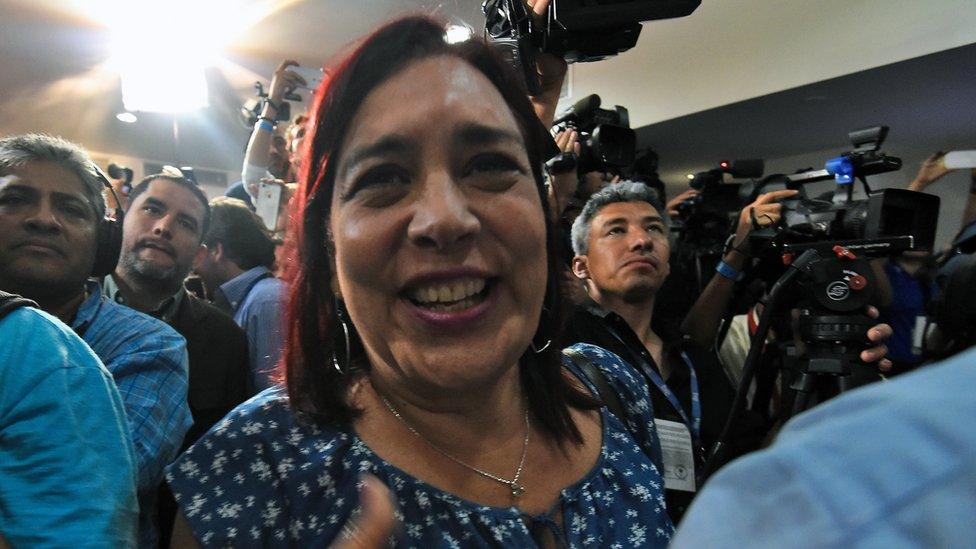
Venezuela's first transgender congresswomen is a lawyer and long-term advocate for equality
"I think [the idea of a legal third gender] will be the first test for this future solution in which gender will be suppressed in the legal document.
"It could be a solution because initially some of the [gender fluid] people in Nepal or India or Pakistan were not able to legally exist. They were not able to vote or go to school, and in general they were deprived of any basic rights. So it is an alternative in these countries.
"In other countries such as Australia which do not categorise a person within the male or female boxes, it's the first step in order to have a much more gender fluid world. But in Australia, for instance, they are allowing people to choose not to be considered legally male or female. But in those cases, you are deprived of the right of marriage.
"We see a little of the possibility [of a less binary future] when you talk about a metrosexual man, or you see women that allow themselves a suit one day and the following day to use a dress with high heels.
"That's part of this gender fluid world in which you are not prevented to use the clothes that you want or to express your gender in the way you want."
The Inquiry is broadcast on the BBC World Service on Tuesdays from 12:05 GMT. Listen online or download the podcast.
- Published2 January 2016
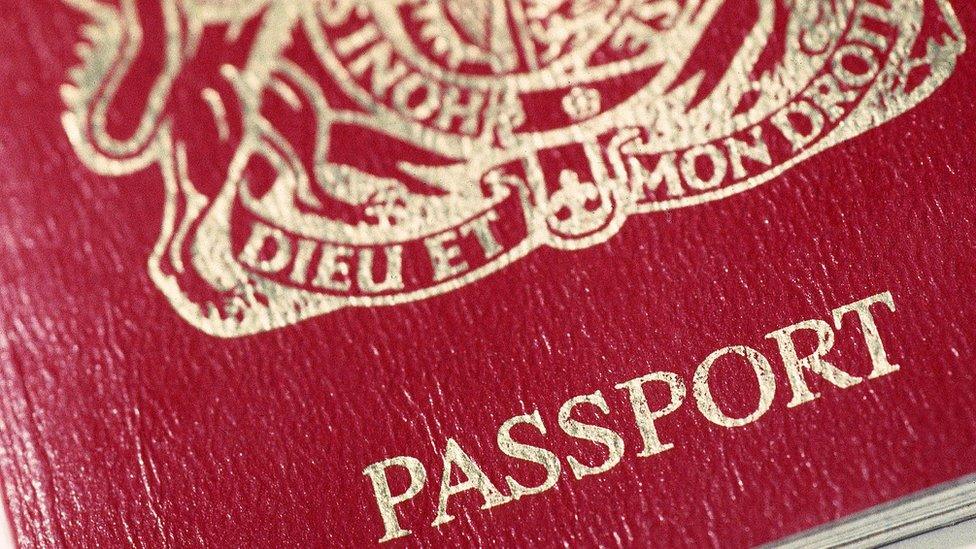
- Published7 December 2015
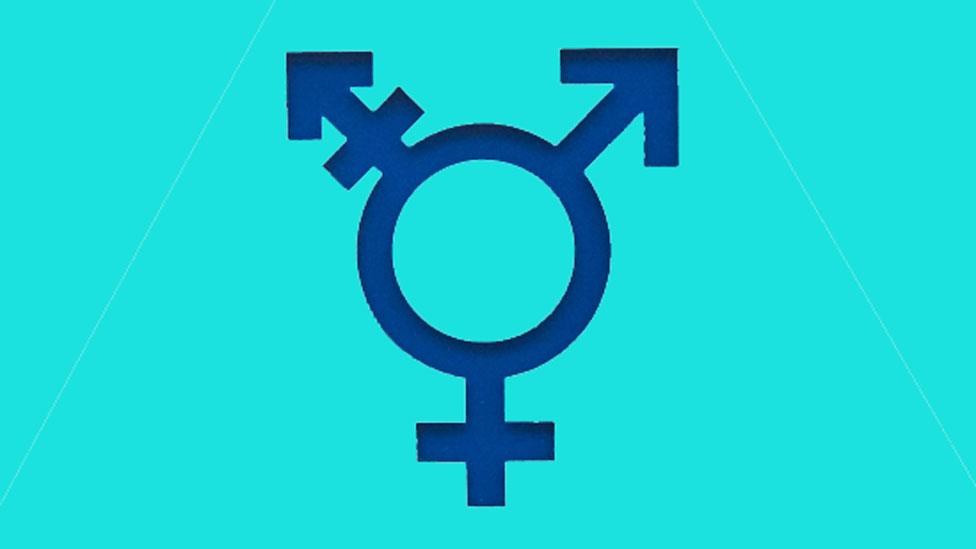
- Published1 December 2015
- Published3 November 2014
